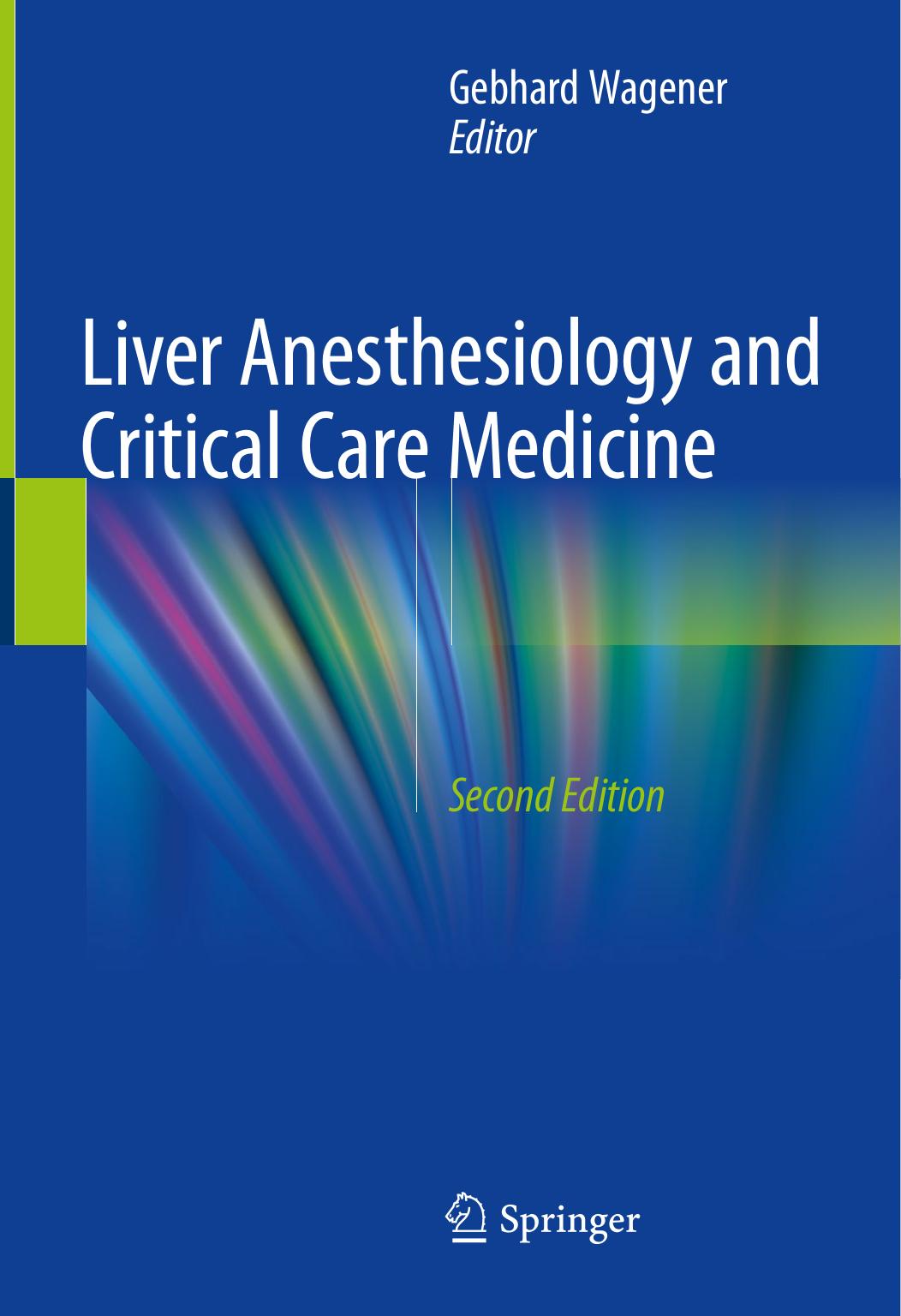Liver Anesthesiology and Critical Care Medicine by Gebhard Wagener

Author:Gebhard Wagener
Language: eng
Format: epub, pdf
Publisher: Springer International Publishing, Cham
Liver Transplantation: Intraoperative Management of Renal Function
Liver transplant remains the preferred treatment of advanced cirrhosis. Patients with combined renal and liver failure should be considered for combined liver kidney transplant (CLKT) [44]. It is not clear which patients benefit from CLKT, but consideration of the type of renal failure, particularly the presence of HRS, along with the severity and duration should be made. Without CLKT, renal function often improves after liver transplantation if renal failure has not been prolonged [1]. However, those patients with severe, longstanding renal failure requiring RRT do not typically improve after liver transplant to acceptable levels of renal function. Given organ scarcity and the need for rationing, CLKT possibilities are limited. Newer approaches have used combined liver and dual-kidney transplants, which is the transplantation of two marginal kidneys that would otherwise be discarded. The outcomes using this approach remain to be seen [54]. More details about CKLT are discussed elsewhere in this book.
As stated before, patients present for liver transplant with varying types and severities of kidney dysfunction and may only have mild and short-lived elevations of creatinine or they may present with severe AKI requiring CRRT. The intraoperative management of these patients is complex, and conventional anesthetic goals can often have detrimental effects on kidney function. As with any surgery, maintaining a normal blood pressure and euvolemia to ensure adequate perfusion and oxygen delivery to all tissues is paramount. Volatile anesthetics as maintenance of anesthesia can decrease GFR primarily as a result of decreased systemic vascular resistance [20]. This may be exacerbated by hypovolemia and antidiuretic hormone (ADH) secretion as a response to surgical stress [45]. There is no evidence that sevoflurane causes clinically relevant renal injury despite the theoretical possibility that release of fluoride induces renal injury [46]. Intraoperative positive pressure ventilation reduces cardiac output, renal blood flow, and thus GFR through activation of the sympatho-adrenal system . Although not specific to liver transplantation, anesthesiologists should be aware of any medications that may accumulate or have adverse effects in patients who have renal dysfunction—barbiturates, benzodiazepines, succinylcholine, morphine, meperidine, and most nondepolarizing neuromuscular blockers should be used with caution.
Liver transplantation is a lengthy procedure and is associated with hemodynamic instability, bleeding, coagulopathy, transfusion and metabolic disarray—all of which can cause and exacerbate kidney injury. The role of the anesthesiologist, among other things, is to maintain adequate intravascular volume and hemodynamic stability, ensure renal perfusion, and minimize further renal injury. Vascular occlusion of the portal triad and interruption of the inferior vena cava is often part of the surgical procedure and, in the absence of veno-venous bypass, results in a significant decrease in cardiac preload and cardiac output and, therefore, renal perfusion [47]. Fluid management strategies such as “low-CVP” techniques and conservative fluid management to prevent liver congestion, bleeding, and transfusion requirements may have harmful effects on renal perfusion and predispose patients to perioperative kidney injury [48, 49]. Significant alterations in the acid–base balance occur intraoperatively and two of the most critical phases of liver transplantation,
Download
Liver Anesthesiology and Critical Care Medicine by Gebhard Wagener.pdf
This site does not store any files on its server. We only index and link to content provided by other sites. Please contact the content providers to delete copyright contents if any and email us, we'll remove relevant links or contents immediately.
| Anesthesiology | Colon & Rectal |
| General Surgery | Laparoscopic & Robotic |
| Neurosurgery | Ophthalmology |
| Oral & Maxillofacial | Orthopedics |
| Otolaryngology | Plastic |
| Thoracic & Vascular | Transplants |
| Trauma |
When Breath Becomes Air by Paul Kalanithi(7256)
Why We Sleep: Unlocking the Power of Sleep and Dreams by Matthew Walker(5637)
Paper Towns by Green John(4165)
The Immortal Life of Henrietta Lacks by Rebecca Skloot(3821)
The Sports Rules Book by Human Kinetics(3582)
Dynamic Alignment Through Imagery by Eric Franklin(3483)
ACSM's Complete Guide to Fitness & Health by ACSM(3462)
Kaplan MCAT Organic Chemistry Review: Created for MCAT 2015 (Kaplan Test Prep) by Kaplan(3419)
Introduction to Kinesiology by Shirl J. Hoffman(3297)
Livewired by David Eagleman(3117)
The River of Consciousness by Oliver Sacks(2989)
Alchemy and Alchemists by C. J. S. Thompson(2909)
The Death of the Heart by Elizabeth Bowen(2897)
Descartes' Error by Antonio Damasio(2728)
Bad Pharma by Ben Goldacre(2724)
The Gene: An Intimate History by Siddhartha Mukherjee(2489)
Kaplan MCAT Behavioral Sciences Review: Created for MCAT 2015 (Kaplan Test Prep) by Kaplan(2486)
The Fate of Rome: Climate, Disease, and the End of an Empire (The Princeton History of the Ancient World) by Kyle Harper(2431)
The Emperor of All Maladies: A Biography of Cancer by Siddhartha Mukherjee(2427)
